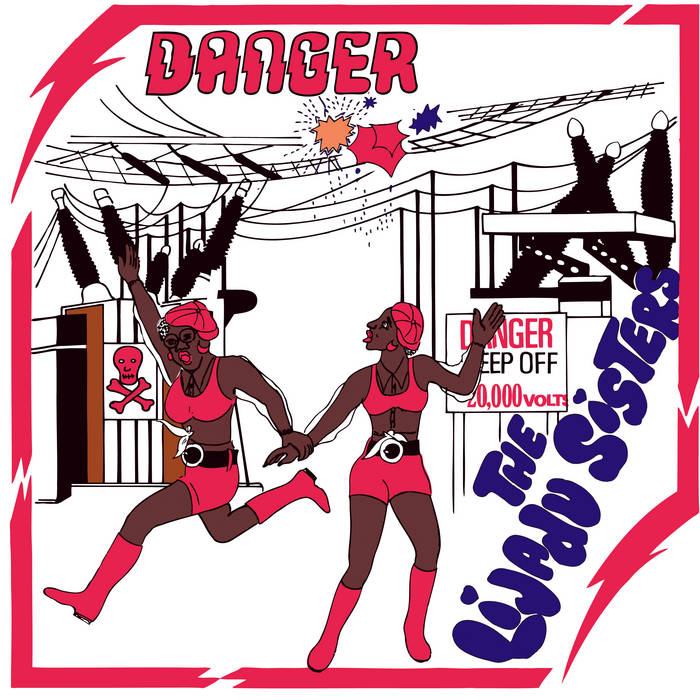Nigeria in 1976 was facing the slow unravelling of post-independence illusions, revealing a murkier, more compromised reality. For women, especially, it was a time of systematic marginalisation: sidelined in politics, silenced in public discourse, and largely invisible in the music industry. Danger, made in Lagos during this period, wasn’t interested in contributing to the official soundtrack of optimism. The Lijadu Sisters used beauty as a delivery system for harder truths, like alternative broadcasters operating outside sanctioned discourse.
Taiwo and Kehinde weren’t making ‘world music’ or any other category designed to contain them. They were cosmopolitan women who drew freely from what served their purpose: American soul refracted through Lagos acoustics, Ella Fitzgerald’s phrasing filtered through Nigerian inflection, and reggae’s political consciousness reshaped by post-independence realism. The album’s sonic DNA ripples outward – that bridge on ‘Danger’ feels uncannily close to what Althea & Donna would ride on ‘Uptown Top Ranking’ a year later. The Sisters attributed this to something “in the air” – a more generous reading than any charge of appropriation.
Their twin harmonies work like a shared frequency, cutting through decades of industry neglect, finishing each other’s musical thoughts with the precision of shared neural wiring. ‘Cashing In’ is sunshine cynicism: it documents government corruption with unsettling brightness. The revelation that ministers were using public money to fly in prostitutes becomes just another verse, delivered through vocals that never tip into outrage. Their attitude tilts thrillingly toward punk in spirit, embracing a looser, unpolished vocal style that feels immediate and untamed, pairing it with lyrics that veer from righteous agitation to something more ambivalent.
Amebo translates as ‘gossip’ in Yoruba, but here it becomes surveillance: we’re watching you, they tell the powerful. The album’s emotional centre is ‘Lord Have Mercy’, which documents child poverty with clinical detachment, then refuses the consolation of resolution. The Sisters later revealed that the dying boy they saw ultimately survived, but they chose silence over comfort, leaving you with the image of waste amidst wealth, of casualty as policy.
Biddy Wright’s production gives their vision room to breathe, understanding that the most effective political music creates conditions where certain truths become inescapable. Johnny Wood’s organ injects a bold, striking tone into the track, while Wright’s jagged guitar anticipates the angular post-punk that would emerge from New York studios years later.
The usual story of exploitation follows: copyright theft, discrimination, decades of obscurity while their influence spread through underground channels. Where Fela Kuti’s politics could be blunt, theirs operate through suggestion – they’d lure you in with irresistible grooves then spring the trap once you were committed.
Danger never chooses between beauty and brutality. The Lijadu Sisters trusted listeners to make necessary connections, to understand that songs about corruption could be delivered as dance tracks, that the most subversive act was simply existing as autonomous Black women in a world designed to diminish them. Nearly fifty years later, that confidence still sounds radical.


